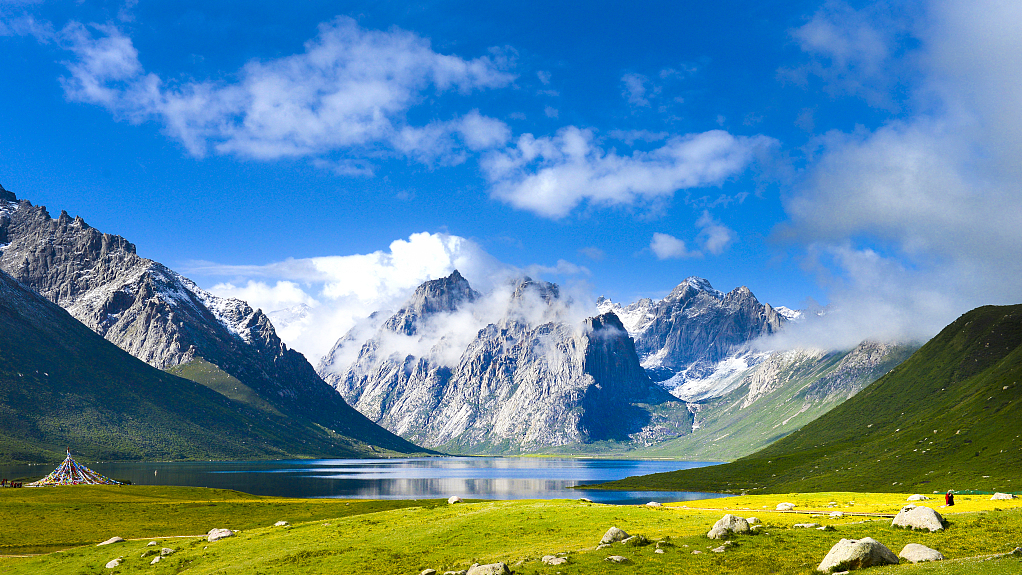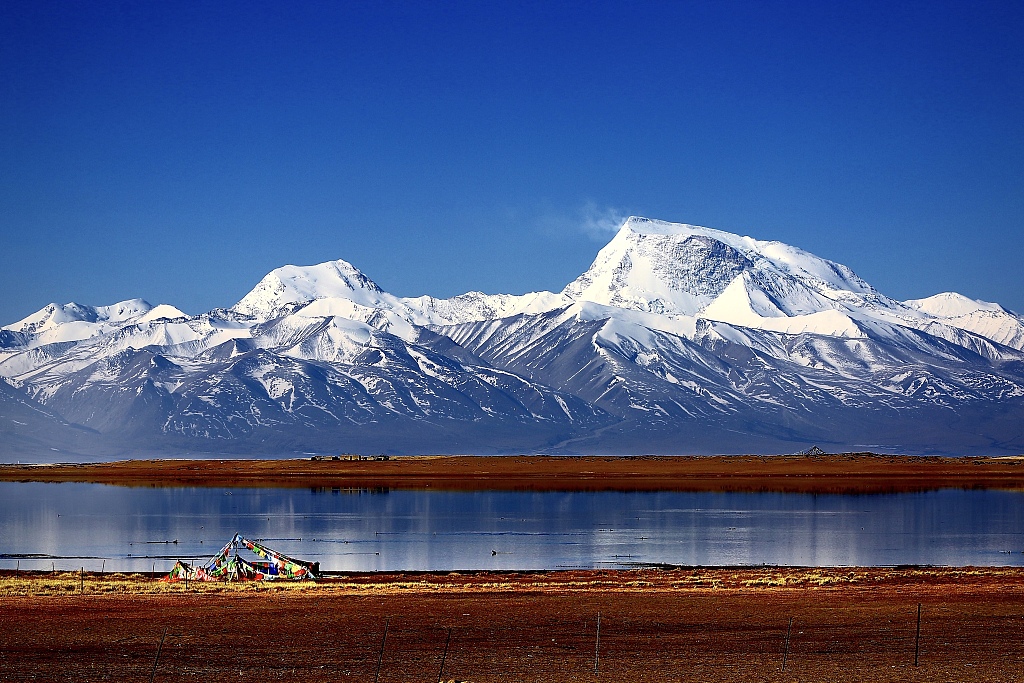A study carried out using remote sensing technology has unveiled a decrease in salinity levels in lakes across the Qinghai-Xizang Plateau during the past two decades.
The study, conducted by researchers from the Institute of Tibetan Plateau Research (ITP) under the Chinese Academy of Sciences, was published recently in the International Journal of Digital Earth.
According to the study, salinity is an essential factor in lake water environments and aquatic systems. It is also sensitive to climatic changes and human activities. However, there are few consecutively temporal studies on lake salinity variations on the Qinghai-Xizang Plateau because the harsh environmental conditions make it difficult to carry out in-situ observations for several lakes.

Salinity is an essential factor in lake water environments and aquatic systems. /CFP
Salinity is an essential factor in lake water environments and aquatic systems. /CFP
In this study, the researchers constructed a remote sensing retrieval model for lake salinity based on 87 in-situ lake investigations. They also analyzed the interannual lake salinity and associated variations from 152 lakes larger than 50 square kilometers on the plateau. The study revealed a significant decreasing trend in lake salinity between 2000 and 2019 on the plateau.
The researchers also found that the lakes with significant salinity changes were mainly concentrated in the central and northern parts of the plateau.

Lake Mapam Yumtso on Qinghai-Xizang PlateauPlateau. /CFP
Lake Mapam Yumtso on Qinghai-Xizang PlateauPlateau. /CFP
The study suggests that the decreasing trend of lake salinity was not directly affected by the precipitation, but was potentially dominated by the expanding lake water volume.
"This study improves the understanding of regional water environmental changes and management efficacy of water resources," said Zhu Liping, a researcher from ITP and the corresponding author of the study.
(If you have specific expertise and want to contribute, or if you have a topic of interest that you'd like to share with us, please email us at nature@cgtn.com.)
Source(s): Xinhua News Agency